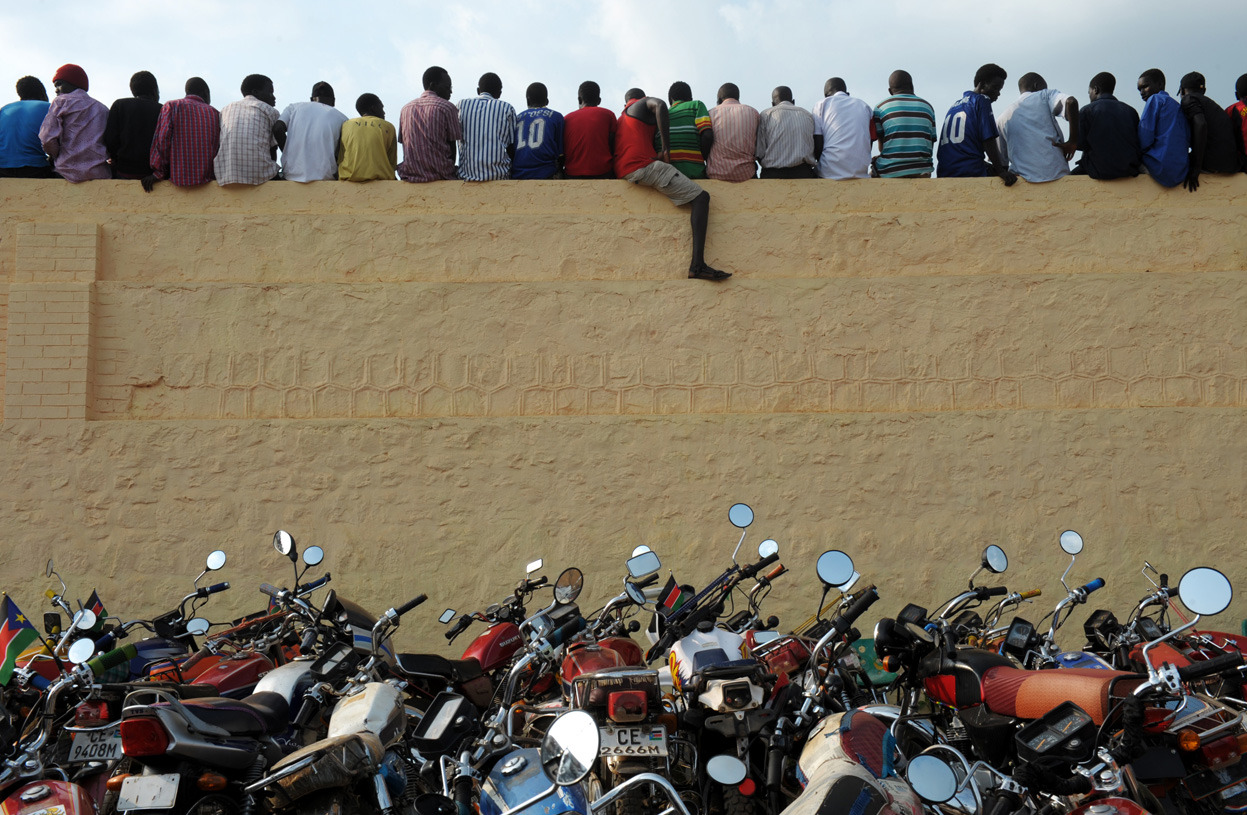When Sudan united for 90 minutes
When Sudan united for 90 minutes


When Sudan united for 90 minutes
By Wael Jabir
You’d be fully excused to think of war, famine and poverty upon the mention of Sudan. The country has been the stage of the world’s longest running civil war that started in 1955 (even before the country was officially independent) and despite a ten-year-long ceasefire in the 70s, the war only ended with the signing of the comprehensive peace agreement in 2005. The agreement effectively led to division of the country into two, ‘Republic of Sudan’ in the north and the creatively named ‘Republic of South Sudan’.
South Sudan officially gained independence in 2011 and on May of the following year the country was admitted as a member of FIFA. By January 2014 they surpassed the likes of San Marino and Somalia into the 202nd ranking out of 207 national teams, courtesy of their solitary 2-2 home draw against Uganda, ranked 85th, in July of 2012. Its not every day that a team at that end of the ranking gets a draw after all.
Earlier this year, two teams from South Sudan debuted in the CAF club competitions, Malakia from the capital Juba plays in the CAF Confederation Cup (the African equivalent of Europa League), while the unwelcomingly named Atlabara - literally means “Get out” in the Sudanese dialect of Arabic - participated in the CAF Champions League.
The two teams were faced with their first challenge even before the competition started when CAF refused to allow them to play their home matches in Juba citing security concerns. Both teams made a rather surprising choice; their second best support base would have been Kampala in Uganda, which is less than 700 km away from Juba, or even the Kenyan capital Nairobi, which has a sizeable community of South Sudanese immigrants. However, they both opted to play their games 1,400 km to the north in Khartoum, the capital of the Republic of Sudan.
Sudan: the country against which their nation has fought for nearly half a century.
Malakia travelled to Sudan led by their captain Richard Justin, who was also a former Captain of Sudan national team and a fan favourite at the top two teams in Sudan; Al Hilal and Al Merriekh. With the exception of Justin, the team is inexperienced and composed of former players from the lower tiers of Sudanese league. The game against Congolese side CARA in Khartoum Stadium was their first ever African match.
When Malakia players walked into the pitch on Friday afternoon, they were dazzled by thousands of Sudanese fans cheering and waving both Sudanese and South Sudanese flags. The truth is that since it was announced the team has opted to play in Khartoum, a social campaign that included Ultras of Al Hilal and Al Merriekh along with many social and political activists called for Sudanese people to attend the match and support their former compatriots.
One of those supporting the campaign is Khartoum-based football writer El Tayeb Farah; he believes football can fix what politicians have ruined.
“They did not choose Khartoum because of the five star stadiums or perfect weather. Our brothers from the South are here because they still belong with us, they know we will support them.”
On match-day, the campaign had received wide response in the Sudanese capital. It was a surreal scene at the stands with chants in both Arabic and local languages of South Sudan mixing with traditional dances among the crowd. It was possible to hear the occasional angry shout at a misplaced pass or a defensive error from Malakia players only to find out the cursing voice was that of a Sudanese fan who had turned 100% Southern Sudanese for the 90 minutes.
After the whistle, it was the few Congolese fans present in Khartoum Stadium who celebrated a 1-0 away win, before securing their qualification to the next round with a 4-0 thrashing in the return leg in Brazzaville. Nonetheless there was a sense of satisfaction, Justin and his teammates made the trip back to Juba confident of better results in the years to come.
A week later, Malakia’s “Juba Derby” rivals Atlabara were in Khartoum fighting to turn around a 2-0 first leg deficit against Ghanian side named Berekum Chelsea. Again the crowd was immense and by all means helped Atlabara complete a dream comeback by the end of 90 minutes, winning 2-0 before succumbing to the misery of penalty kicks.
Sudan has never been an African football powerhouse, yet the beautiful game’s popularity in the country is undisputed, the ‘Umdorman derby’ between Al Hilal and Al Merriekh regularly records attendance levels above 40,000 fans and the two teams have been ever-present in the latter stages of CAF club competition thanks to their home fanbase and financial strength.
Sudanese FA official Tariq Ata agrees that football can unite the two nations: “We have shared the same land for ages. The North and South now have different governments but for many, we remain one nation. The sport can unite us with the popular support it harnesses. We have nothing to do with politics, we are happy to connect and wish them success.”
It may not have been a happy ending to the South Sudanese teams’ maiden African adventure, but it has definitely been an inspiring story where football remains a uniting factor for a nation literally torn apart by decades of wars and ethnic conflicts.
This piece was written by Wael Jabir, you can follow him on Twitter @waeljabir.







